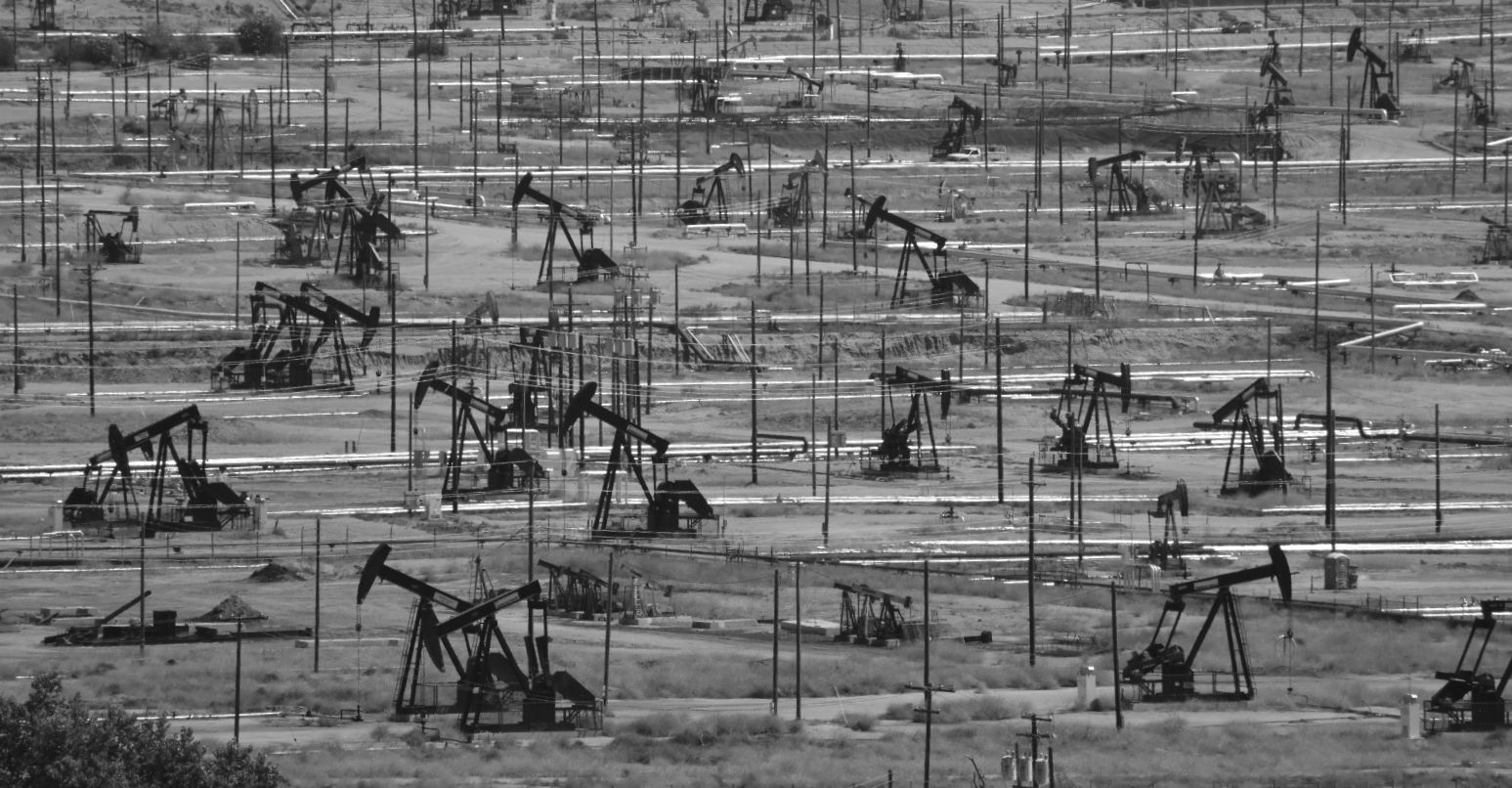Ideas of a ‘just transition’ to a new economic and social order – one no longer governed by the logic of an ecologically destructive and mercenary capitalist market – are rapidly gaining traction. We can see this in the growing popularity of Green New Deal proposals, such as the one tabled by Alexandra Ocasio-Cortez in the US, as well as similar proposals in Australia. Leading up to the global school strike on September 20, which saw an estimated 300,000 Australians take to the streets, the Australian School Strike 4 Climate group announced that they were changing one of their core demands to urge funding for a ‘just transition and job creation for all fossil-fuel workers and communities’, a demand backed by a number of key trade unions.
While responses to climate change are sometimes framed in narrow economic terms, focusing on the creation of ‘green jobs’, the framework of a just transition acknowledges that ‘transitioning an industry is a massive economic and social disruption’, with costs most often borne by workers and communities. Left-wing iterations of a Green New Deal suggest that these shifts in production need to be accompanied by a broader set of social changes, including large-scale public investment in retraining, housing, infrastructure, transport, and healthcare. Securing access to these public goods is an integral part of building a democratic and just society, putting power into the hands of working people, rather than the capitalist class. Without this approach, we run the risk of eco-fascism: increasing militarisation of borders, heightened policing and surveillance, and the opportunistic use of climate change as a source of profit for private companies.
One point that has received less attention in this debate is the importance of free tertiary education to a just transition. On the face of it, higher education policy might seem to have little to do with how we address ecological destruction–- but, much like the public goods identified above, educational justice is actually a critical part of climate justice.
If we are serious about transitioning workers out of fossil fuel industries and into green jobs, then we need to plan carefully for how workers will be supported through this transition. Workers in fossil fuel-intensive industries cannot simply be relocated onto new sites – installing wind turbines or solar farms is very different to working in construction on a mining site, requiring new skills and training. Both the Greens and the ALP have committed to providing funding for this re-training, with the ALP flagging $10 million for a Clean Energy Training Fund last election, and the Greens $1 billion for a Clean Energy Transition Fund.
Clearly, the vocational education system will be crucial in this process. TAFE trains over half a million people each year to do some of the most socially important work, like nursing, plumbing, construction, childcare and community work. However, the TAFE system in Australia is woefully underfunded, the federal Coalition government having cut $3 billion from the sector since 2013.
As part of the ‘One TAFE’ reforms in NSW, cuts were made to TAFE administration departments with the aim of creating a ‘single, lean corporate office’. The IT system was also outsourced to a private US-based provider, a decision reversed last year after significant delays and issues with the software. At the same time, existing courses have been condensed and TAFE campuses have been forced to close down, including seven proposed closures in South Australia alone, and in December the NSW government announced that 196 jobs would be slashed before Christmas.
Changes to the VET Fee Help (VFH) scheme since 2012 have only exacerbated the problem. A rapidly increasing number of private providers are given chunks of public funding for each student they enrol. Between 2009 and 2014, the number of students enrolled with private providers rose by 286%. But there is little government oversight of these organisations, whose courses are often poorly designed and poorly taught. Their students end up in debt, without proper training, and much less likely to gain an apprenticeship, while public education funding is transferred directly to private enterprise. As the President of the Australian Education Union, Correna Haythorpe, has said: ‘putting profit-seeking private training providers in charge of vocational education is all about helping big business line its pockets at the expense of ordinary Australians.’ A just transition is quite simply impossible without reversing these changes and providing full public funding for vocational education.
Aside from democratising the technical skills needed for a new economy, we also need knowledge and research to help us imagine and create new kinds of social relations. In capitalist society, knowledge production is by and large the business of bourgeois intellectuals, who have the greatest access to the spaces where knowledge is produced. If we are to imagine and build a world beyond capitalism, this won’t do. We need to democratise the production of knowledge, to elevate different forms of knowledge that have been subjugated – including, and particularly, Indigenous knowledges.
To democratise universities, we need to reverse the growing influence of corporate funding and private partnerships, such as the research contracts and governance ties between public universities and arms dealers and the fossil fuel industry. We need to resist attempts from the right, such as the Ramsay Centre, to weaponise universities as vehicles for conservative ideology. We need to ensure that decisions are made democratically by education workers, rather than by ‘senior managers’ focused narrowly on profit and competition. Strengthening the power of trade unions in the sector, like the National Tertiary Education Union and the Australian Education Union, as well as student unions, will be vital in this process. And we need to decolonise our universities – not only by removing glorified references to genocidal colonial figures like William Wentworth, but also by revolutionising what kinds of texts we value, teach, and canonise.
Perhaps most fundamentally, we need to ensure that universities are fully and publicly funded. While we have a publicly funded loans program for university degrees (formerly known as HECS, now as HELP), the introduction of this program by Bob Hawke’s Labor government in 1989 really signified the re-introduction of university fees, after they were abolished by Gough Whitlam in 1974. Now, there are 2.9 million people in Australia living with outstanding student debt, and the collective debt to the federal government has risen to $62 billion. As the threshold for loan repayment is steadily lowered, the impact of this debt on young working people becomes greater – and so does the barrier to entering university for working class people.
It is important to counteract the assumption that the HELP and VFH systems are in any way comparable to free higher education. Of course, a nationalised loan system is preferable to the predatory apparatus of private loans in the US, where student debt is now valued at over $1.6 trillion. But when the average student leaves university with tens of thousands of dollars of debt hanging over their heads, higher education is neither free nor fair; it becomes a financial burden that can take decades to pay off. Calls to abolish student debt, such as Bernie Sanders’ plan, acknowledge the intergenerational nature of this burden. The Australian government already assumes that 18 per cent of existing student debt will not be able to be recovered; wiping the other 72 per cent could easily be paid for right now by a small raise in the corporate tax rate.
Of course, a just higher education system must be supported by healthy public schools. The Coalition has implemented legislation to cap Commonwealth funding for public schools at just 20 per cent of the School Resource Standard (SRS), while perversely, non-government schools receive 80 per cent of their SRS funding from the Commonwealth. The so-called ‘education revolution’ has stripped much-needed funding away from public schools, to the benefit of wealthy private schools; this funding must be restored in full.
Finally, free education should not be restricted to those with Australian citizenship. The exploitation of international students functions as a racket not only to fill the gaps left by dwindling public funding, but to line the pockets of university bosses. This system also forces refugees who are currently living in Australia on temporary visas to pay full-fee rates, essentially locking many refugees out of higher education altogether. In 2014, Germany made its public universities free for all students, regardless of their country of origin (though has recently reintroduced certain fees for non-EU students), providing a strong precedent for this model. The exploitation of international students is both a product of, and a means to reproduce, white Australian xenophobia and racism; putting international and domestic students on an equal footing is a challenge to it.
Education is a political tool. The capitalist class knows this, as do the thousands of school strikers around the world. Educational institutions can legitimise and stabilise existing relationships of power and domination, or they can act as a site where these relationships are challenged. If we are to radically reshape our economic and social relations, as the climate crisis calls us to do, then we need a democratic and just education system; one oriented not towards profit, but towards the public good. This is but one aspect of the broader social revolution we need: as the Research and Destroy Collective write, ‘a free university in the midst of a capitalist society is like a reading room in a prison; it serves only as a distraction from the misery of daily life’. A just education system must serve the joint purposes of providing the skills needed for a radically different economy, and the knowledges needed to make possible, and to build, another world for us all.
Photo by Edwin Andrade on Unsplash



